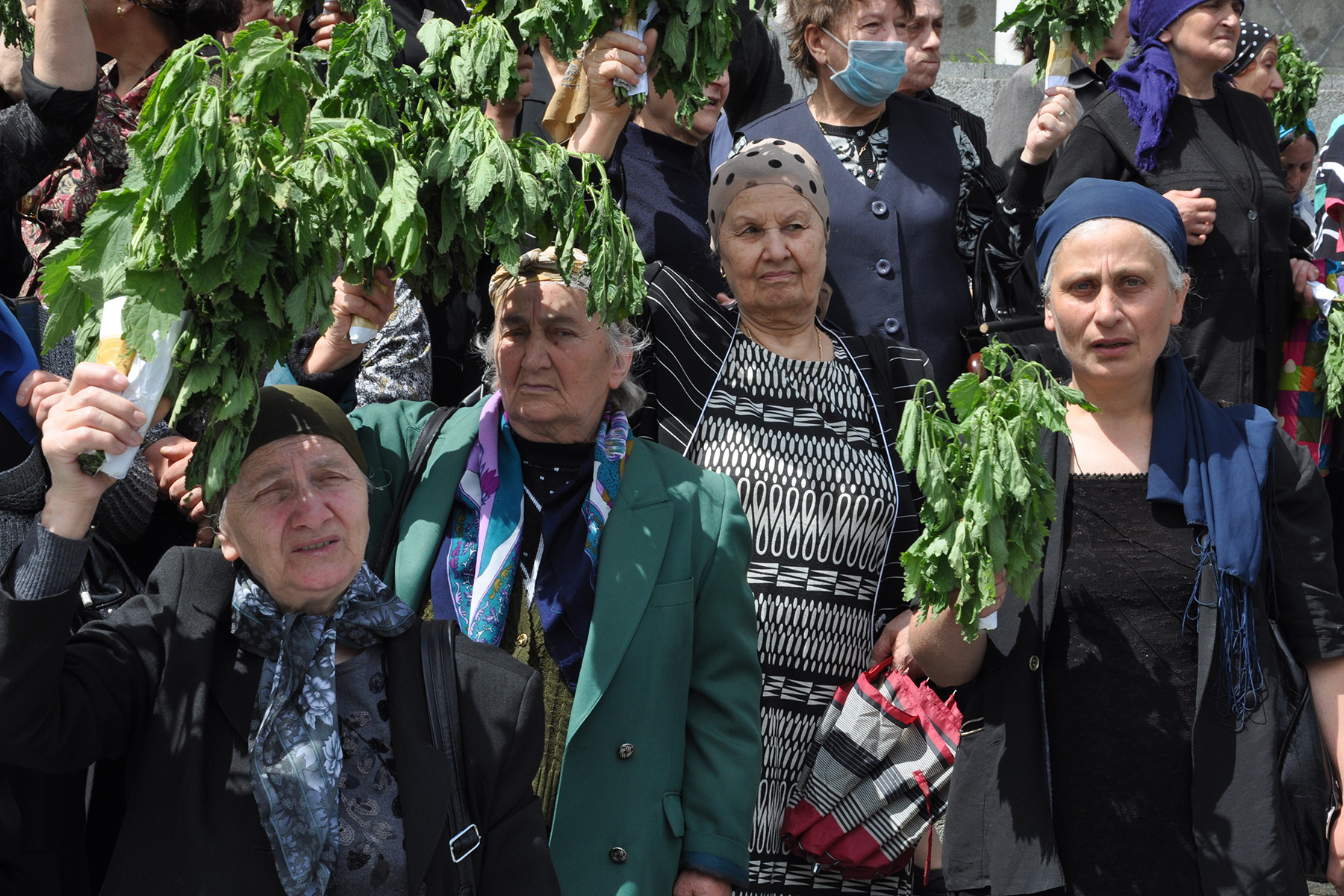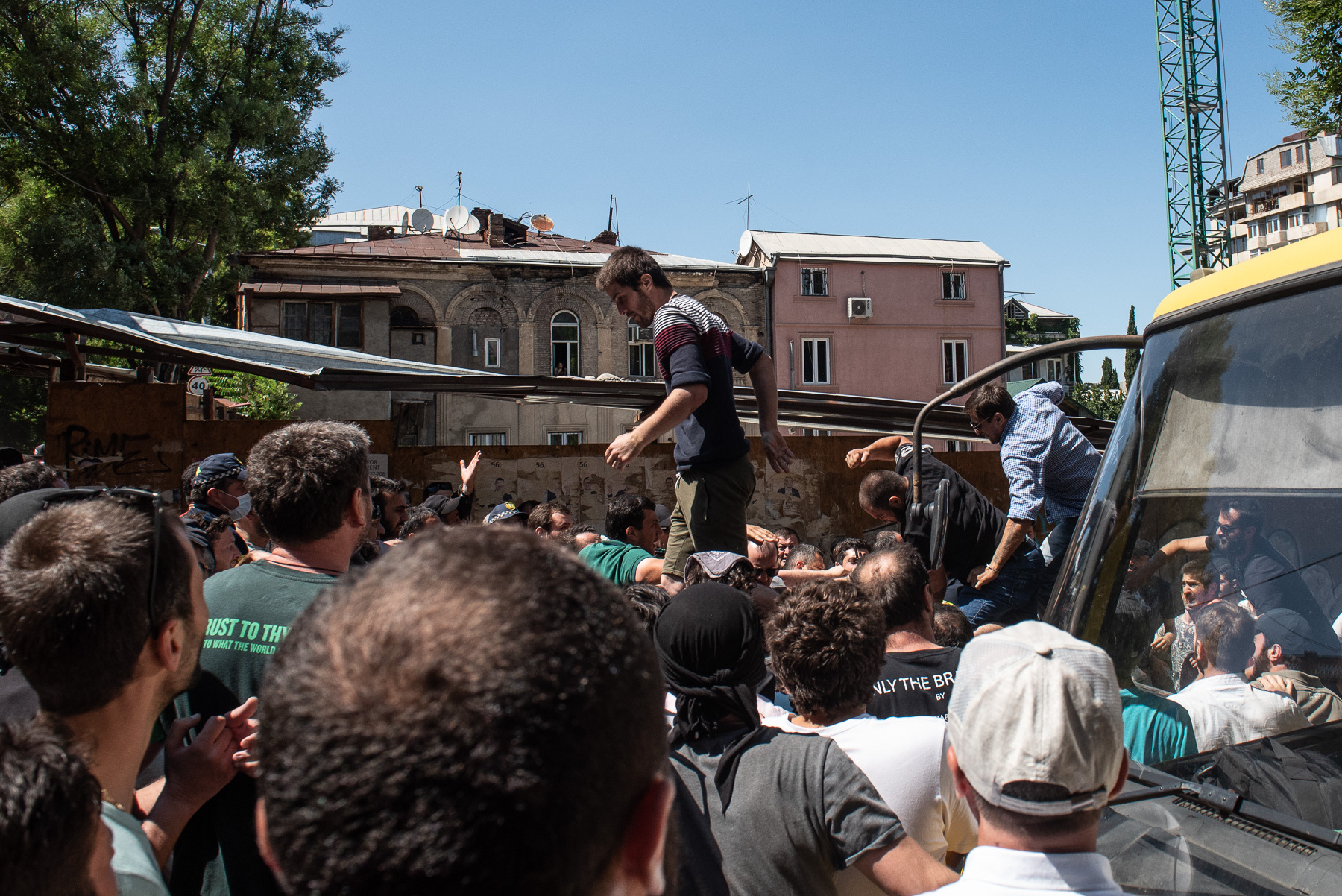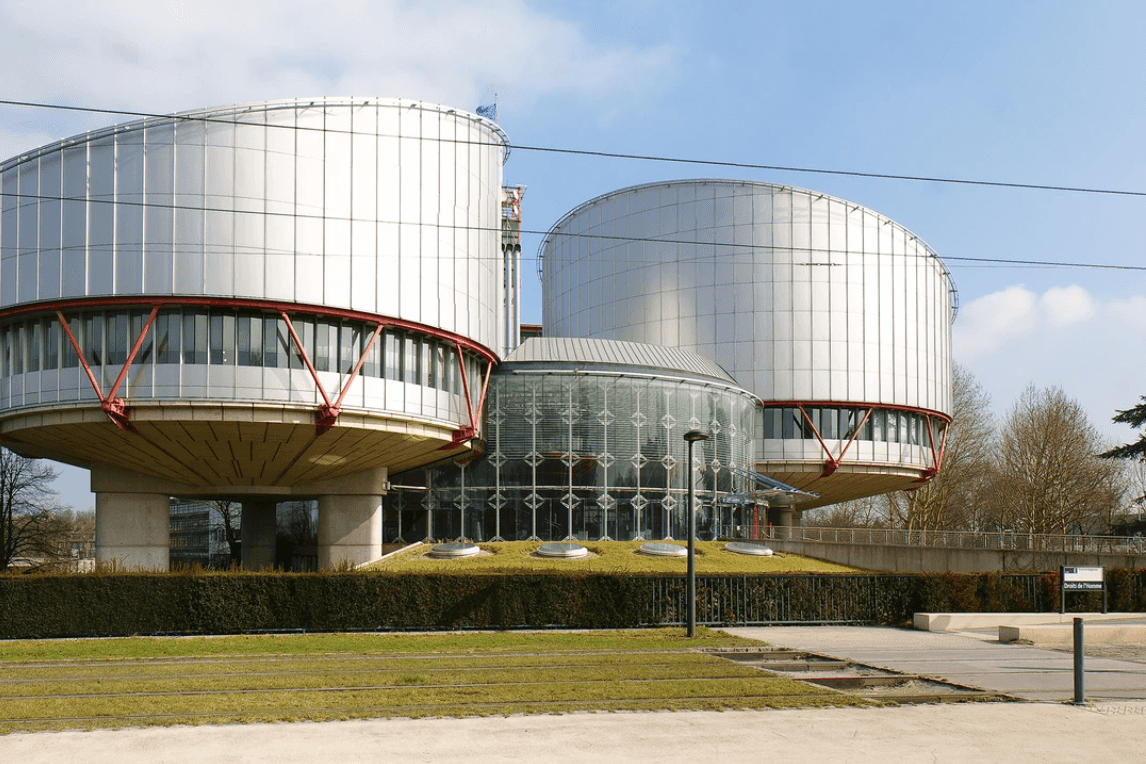Georgia responsible for ‘unprecedented’ 2013 attack on queer activists, ECHR rules

The European Court of Human Rights (ECHR) has found the Georgian Government responsible for ‘unprecedented’ violence against a queer rights demonstration in Tbilisi on 17 May 2013, and ordered them to pay €195,000 ($220,000) to the victims.
The lawsuit was filed in the Strasbourg court by 35 Georgian citizens and two non-governmental organisations — the Women’s Initiative Support Group (WISG) and Identoba, a queer rights group.
On 17 May 2013, marked annually as International Day Against Homophobia, a small group of queer rights activists had attempted to hold a demonstration against homophobia in Tbilisi. They were attacked by thousands of homophobic counter-demonstrators led by Georgian Orthodox priests, eventually being evacuated by police. The authorities have repeatedly explicitly refused to protect demonstrations by queer rights campaigners since 2013.
[Read more about 17 May 2013: 16–18 May 2013: the days of human tragedies]
The court found that Georgia violated three articles of the European Convention on Human Rights, the prohibition on inhuman or degrading treatment, the prohibition on discrimination, and the right to freedom of assembly.

The court ruled that despite the authorities being aware of the danger that the demonstrators faced, they failed to make adequate security arrangements.
‘Such failure to take effective measures had been compounded by evidence of official connivance, and even active participation in individual acts of prejudice’, the court stated in a press release.
The court noted footage filmed by journalists showing police failing to respond to the violence, and in some cases, allowing the counter-protesters through their lines.
‘[The court] was especially concerned by the images of senior officials, taking part in negotiations with the priests, remaining indifferent in the face of serious threats to public order.’
The court also condemned the lack of adequate investigation following the attack, which they said ‘exposed the authorities’ long-standing failure — perhaps unwillingness — to investigate homophobic and/or transphobic violence.’
The ruling comes five months after a planned queer pride march in Tbilisi was called off when violent homophobic protesters once again took to the streets. At least 53 journalists were injured, one of whom passed away a week later, as the protesters turned their anger on the press.

[Read more: Georgian authorities fail to produce autopsy 5 months after journalist’s death]
Tsiala Ratiani, a lawyer from WISG representing 16 of the applicants in Strasbourg, hailed the ruling, calling it a ‘slap in the face’ to the authorities.
Ratiani told OC Media it served as a reminder to the authorities that they were ‘obliged to protect people gathered at rallies’, adding that the government ‘cannot restrict either the place of assembly or the time.’
‘I cannot say that after this decision the government will better defend people or repeat the same thing again, because people still go to demonstrations relying only on themselves, because they have less hope in protection from the state’, she said.
‘I was defending the people […] whose lives and health were then in real danger. I can boldly say that they looked death in the eyes’, Ratiani said.
She added that the demonstrators had only wanted to point out that there were many issues facing the queer community in Georgia.
‘The state couldn’t protect people from torture, couldn’t ensure that this demonstration would take place so as not to endanger people’s lives and health. But all this was done through discrimination’.
Ana Subeliani, the co-director of Tbilisi Pride, the organisers of 5 July’s aborted pride march, said the decision was of ‘historical significance’.
‘It proves that, unfortunately, we have a systemic failure in Georgia regarding LGBT issues’, Subeliani told OC Media. She said the ruling ‘underscores once again that the situation in this regard is deteriorating from year to year.’









